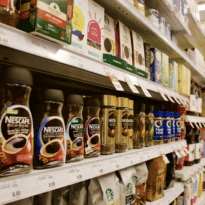David Miller, executive director and investment manager at Quilter Cheviot, comments on three issues that are dominating the investment agenda at the moment; US politics, Brexit and the virus.
Confidence took a step back last week. There will be no miracle cures for a recession as deep as this one, but growing immunity to bad news wouldn’t be a complete surprise. For investors with a longer time horizon there is a recognition that earning a return involves taking calculated risks. Over the last ten years inflation has outperformed cash on deposit including interest, but before tax by nearly 30%. Short-term certainty comes at a heavy price.
Shakespeare knew that three was a good number when it came to capturing the attention of the audience; Friends, Romans, countrymen for example. Similarly, investors seem to have settled on three issues that matter; the US Presidential Election, Brexit and the progress of the virus. Of these, two have end dates within the next few weeks, whilst the third remains open-ended.
US politics
I was forced to confront the intricacies of US politics during a challenging question and answer session discussion organised by the Franco British Chamber of Commerce in Toulouse, albeit virtually.
Responding to the result of the US election is a matter of tactics and strategy. In the short term the certainty of a result, whatever that might be, could be a positive for financial markets. Delayed decisions, particularly the stimulus package, will be made for better or worse. Longer term, the policies implemented by the new Administration are for another day as the permutations are too numerous to form the basis of an investment plan.
Currency markets tend to be the first to react, but even here, wait and see is the order of the day despite the consensus view that the dollar will weaken whoever is in charge.
Next month, when this particular fork in the road is reached, investors will decide and move on.
Brexit
Ever since 23 June 2016 we have been waiting to know how Brexit will be implemented. Day one, that is the first day after the UK leaves the EU, is almost upon us.
Financial markets will have their say with foreign exchange rates probably leading the way here as well. The range of outcomes for sterling is wide with the current level leaning towards a deal of some description.
For what it’s worth, the non-UK media is a lot less interested in the negotiations than we are. Tilting at EU windmills may be good politics at home but doesn’t travel far. The war of words between the government and business will continue, but beneath the surface companies are always preparing for the future, with the exact form of Brexit just one of many uncertainties.
Listening to a discussion about Anglo-Indian trade opportunities I was reminded that the UK economy remains a global giant, ranking fifth largest at the end of 2019, just a fraction ahead of India and France. The declining importance of the domestic manufacturing sector is often regarded as a negative for the UK, but it still accounts for 20% of total GDP. A fifth of $2.6 trillion is still larger than the entire Swedish economy.
The virus
The resurgence of infections is starting to affect economic growth, particularly in Europe which a few months ago was regarded as a model to others.
Restrictions are not good for confidence whether measured by consumer spending or employment. It looks like it will be a hard winter for the northern hemisphere. Having said that, now is better than earlier in the year.
We have changed the way we behave – particularly those who are most vulnerable, and better treatments continue to be developed. That the fatality rate isn’t following rising infections is encouraging. Although there is no end in sight, there is the possibility of a vaccine.
The highlights of a report by investment partnership J. Stern & Co are worth repeating. According to the World Health Organisation there are 192 vaccine candidates of which 40 are being clinically evaluated and 10 are in phase three, which is the last stage before approval. If one or more of these is found to work then Europe and the US could start to feel more normal by the second half of next year. Now that would be good news.
The US election, Brexit and the virus all matter, but as time passes the future becomes the present and uncertainties become more certain. This goes some way to explaining why optimism tends to outperform pessimism.



































